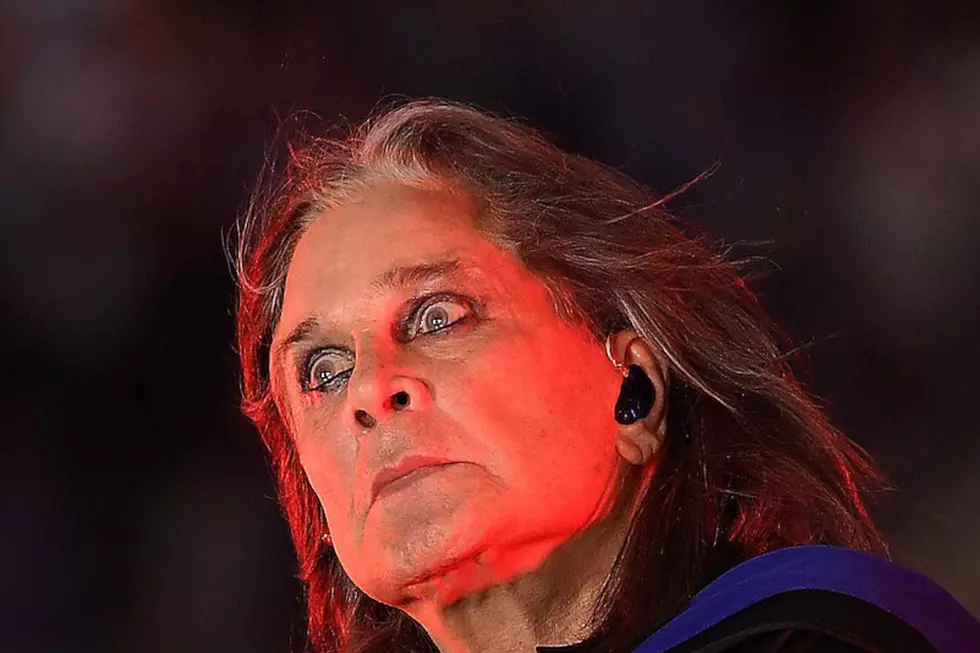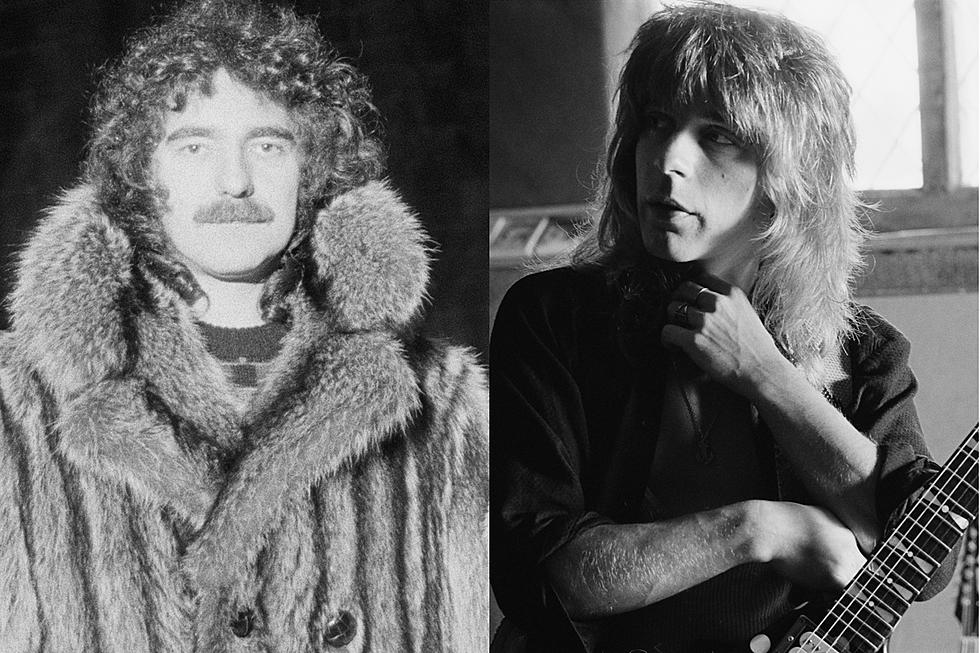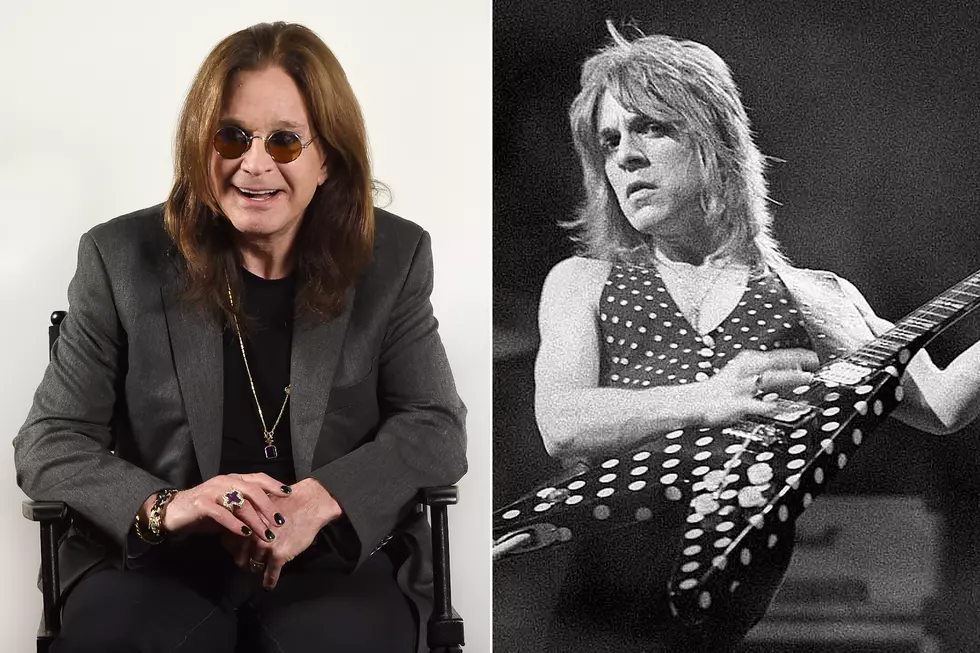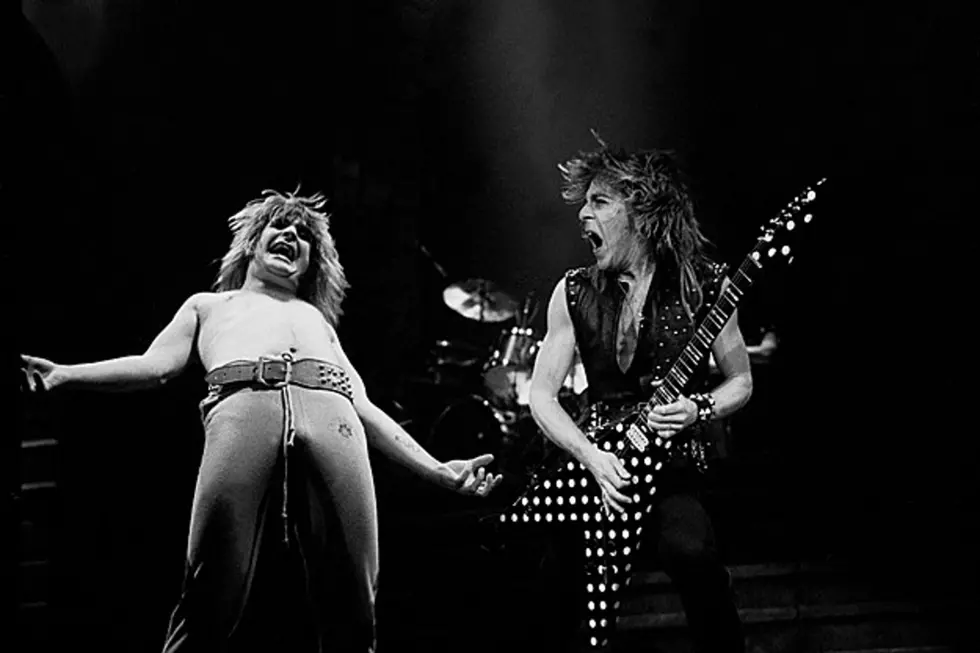
When Ozzy Osbourne Went on TV Just Days After Randy Rhoads’ Death
When you're in the midst of an emotional crisis, sometimes it's easier to just keep going. Ozzy Osbourne, though he was on tour when guitarist Randy Rhoads died in a tragic plane crash, pressed on through the turmoil — not that he really had much of a choice.
Osbourne, out promoting his second album, 1981's Diary of a Madman, was already teetering off-kilter before Rhoads' passing. Fired from Black Sabbath in 1979 for unreliable behavior stemming from substance abuse, he continued to indulge throughout the early '80s, piling up a list of outlandish incidents that threatened to overshadow his music.
The Madman tour proved particularly troubled. After embarking on the American leg in early 1982, Osbourne made headlines when he grabbed a bat thrown on stage and bit its head off. Although he later professed to believe it was a rubber toy, the mistake only underscored the public persona he'd cultivated for years, and it'd continue to shadow Osbourne's career for decades. Similarly infamous was Osbourne's February 1982 arrest after urinating on the grounds of the Alamo.
Needless to say, Osbourne's band had been veering toward chaos for months when Rhoads passed away, and no one would have been surprised if the guitarist's death had been the grueling setback that finally sent him over the edge. But while Rhoads' singular gifts would prove all but impossible to replace, Osbourne didn't shrink from the spotlight. In fact, Osbourne appeared on Late Night With David Letterman on March 25, 1982, just six days after Rhoads' death. He was honoring a prior commitment for an interview segment that ended up ranging from the bat incident to the plane crash.
Watch Ozzy Osbourne Chat With David Letterman
Osbourne would later claim he was inebriated during the show, but all things considered, he was commendably lucid. He declined to get into too many details about the incident, which was still under investigation, but he did publicly vow to resume the tour – insisting it's what Rhoads would have wanted and adding, "You can't kill rock 'n' roll."
Somewhat incredibly, the band was back on the road April 1, with new guitarist Bernie Tormé logging the first in a handful of dates he'd serve as a fill-in before being replaced by Night Ranger's Brad Gillis for the remainder of the tour. Before the end of the year, Osbourne would release yet another album, the live collection Speak of the Devil, which collected recent concert performances of classic Sabbath tracks.
Behind the scenes, of course, Osbourne was still hurting — and partly going through the motions with contractually mandated projects like Speak of the Devil. Turnover continued to plague his band through 1983, and he continued to battle emotional, mental and physical problems exacerbated by Rhoads' death for months, if not years.
In the end, as he always had, Osbourne proved surprisingly, admirably resilient — and five years after Rhoads' death, he honored their shared legacy with the hit Tribute release, which collected recordings from Rhoads' too-brief time in Osbourne's band.
Ozzy Osbourne Albums Ranked
More From US 103.1 FM










